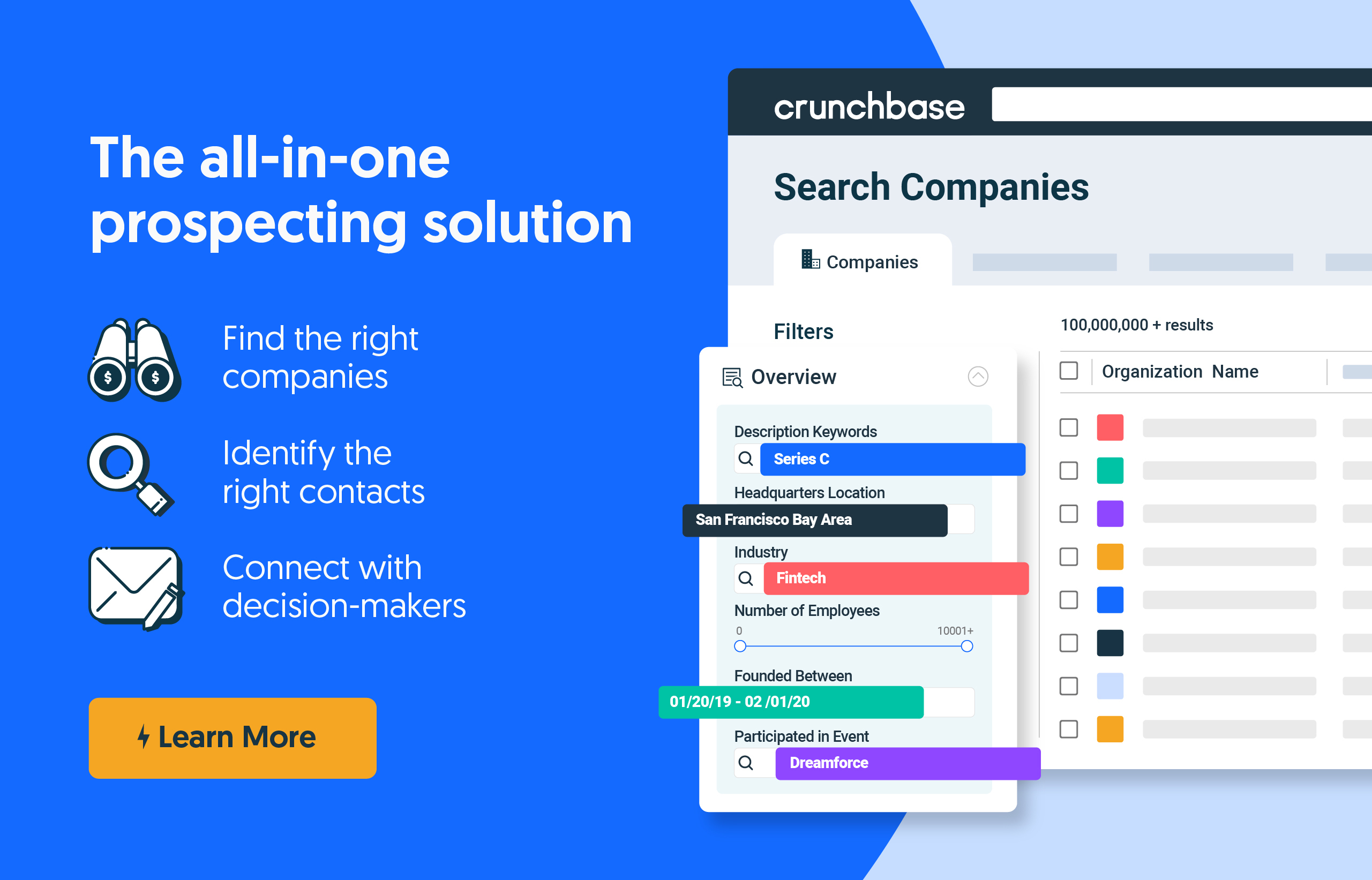We looked at the time it took to exit for 127 publicly traded tech companies. Specifically, we used their S1’s — a securities filing a company makes before IPO — to find out the year each company was founded and compared it to the last year financials were released as a private company. The data is below.
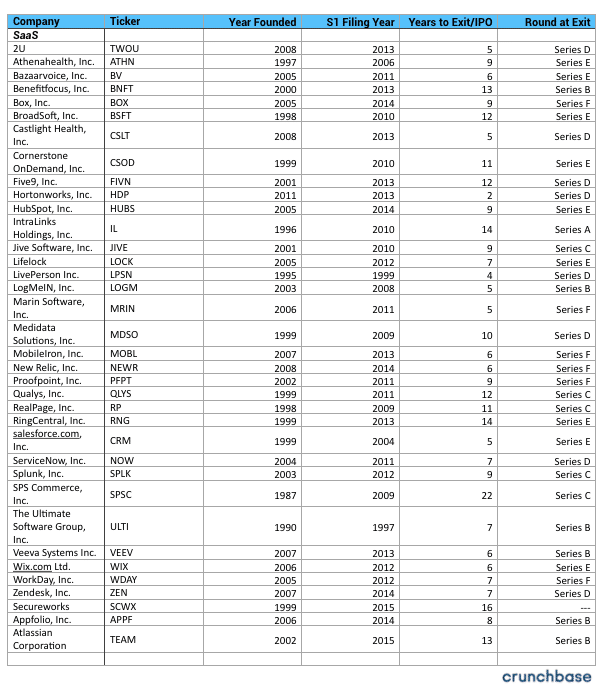

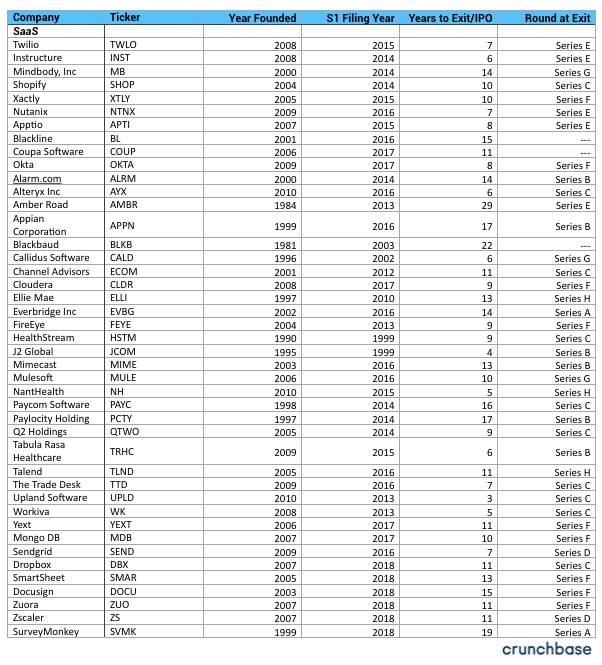





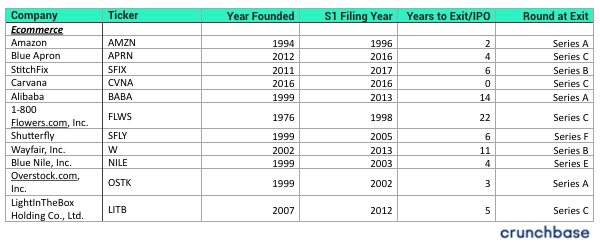





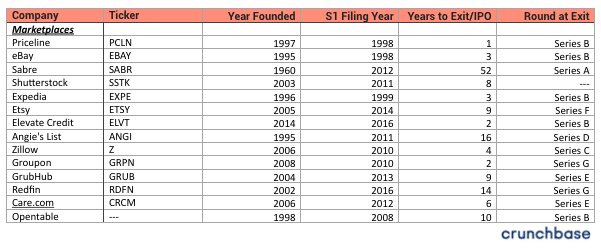



The time it takes for a startup to exit depends on the industry
The amount of time it takes a company to exit is partly dictated by the industry. For instance, the median time to exit for payment companies (Square and Paypal) is only 4 years whereas hardware companies took on a median 11 years to exit.
The recent IPO’s of Sonos and Roku took 16 years and 14 years respectively. Indeed hardware companies that exited tend to have a much longer R&D cycle.
SaaS companies take 9 years to exit
SaaS companies took 9 years to exit since founding, on median taking funding through the Series D. The median level of capital raised for SaaS companies to achieve exit was $119mm.
B2C-focused companies exit faster
Social media companies, marketplace companies, and content distributors exited within 7 years on the median.
Gaming companies took only 6 years, e-commerce companies took 5 years, and payment companies took 4 years. Excluding hardware which has a heavy R&D component, B2C companies tend to scale faster due to virility and the tendency for hot B2C companies to attract tremendous media attention.
Older companies exited much sooner
For example, Netscape exited in 1994, the same year it was founded. Netflix exited four years after its 1997 founding. Google took 5 years after being founded in 1998, TakeTwo took 6 years (founded in 1993), Amazon took 2 years, and Overstock took 3 years.
Companies with a pre-2000 founding vintage got to exit very fast even though they were far smaller than their predecessors that IPO today. The ’90s were an incredible time and you could exit with ease relatively quickly whereas today, investors require a lot more revenue which takes time to build.
Sammy is a co-founder of Blossom Street Ventures. They invest in companies with run rate revenue of $2mm+ and year over year growth of 50%+. We can commit in 3 weeks and our check is $1mm. Email Sammy directly at sammy@blossomstreetventures.com.


